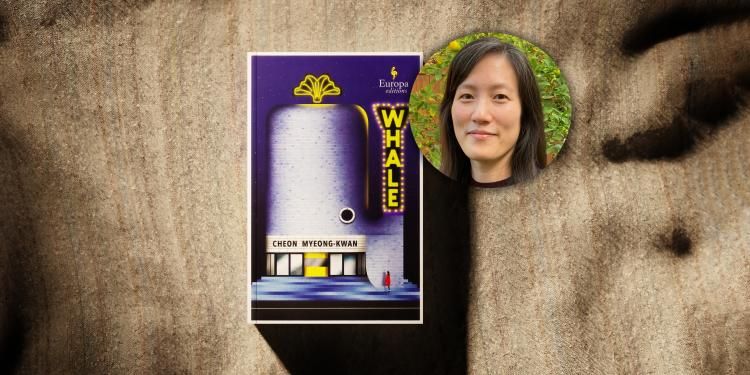
Cheon Myeong-kwan interview: ‘Whale is still a propulsive force in my life'
Shortlisted for the International Booker Prize 2023, author Cheon Myeong-kwan talks about the inspiration behind Whale in an exclusive interview

With Whale shortlisted for the International Booker Prize 2023, its translator talks about immersing herself in the author’s world and why the book reminded her of her grandmother
Read interviews with all of the International Booker Prize 2023 authors and translators here.
How does it feel to be shortlisted for the International Booker Prize 2023 - an award which recognizes the art of translation in such a way that the translators and author share the prize money equally should they win – and what would winning the prize mean to you?
It’s a true honour to be shortlisted alongside so many incredible authors and translators. I consider it a win any time books written in languages beyond English are part of the conversation. I hope more readers will pick up Whale and all the other shortlisted titles!
How long did it take to translate the book, and what does your working process look like? Do you read the book multiple times first? Do you translate it in the order it’s written?
It took about 10 months. The bulk of the work happened in 2020, during the early days of the pandemic, and it was a relief to immerse myself in Mr. Cheon’s world. Generally I read a book once through when I’m deciding whether to translate it, then translate it from the beginning. My first draft includes notes and queries for myself. Then I refine and edit over many drafts.
What was the experience of working with Cheon Myeong-kwan like? How closely did you work together? Was it a very collaborative process? Were there any surprising moments during your collaboration, or joyful moments, or challenges?
This was the first book I’ve ever translated where I didn’t reach out to the author during the process. I literally had zero questions for him! It’s funny how Mr. Cheon says he wrote the book as if someone were dictating it to him, because translating it was a similar experience. Something about the narrative and the tone and the characters felt so familiar to me. I was reminded of my grandmother, who told me all kinds of folk tales and stories when I was young, as well as the Korean books I loved growing up. It felt comfortable, like home.
Aside from the book, what other writing did you draw inspiration from for your translation?
When I start a translation I often read books that will get me in the right headspace and mood, which helps me land on the voice. For Whale, I referenced Gabriel García Márquez’s One Hundred Years of Solitude, translated by Gregory Rabassa, and She Would Be King by Wayétu Moore for their sweeping scope, mythical flavour, and generation-spanning storytelling.
Chi-Young Kim
When I start a translation I often read books that will get me in the right headspace and mood, which helps me land on the voice
What was your path to becoming a translator of literary fiction? What would you say to someone who is considering such a career for themselves?
As a lifelong bookworm and a third culture kid, I sort of naturally fell into literary translation. I grew up moving between South Korea and the US and Canada, and the one constant was books. I also worked in independent publishing for a brief time and got to know editors and translators. My advice to aspiring translators is to read widely, particularly in your target language. It’s also important to realise that very few of us are able to translate literature full-time! Even though I’ve been translating for 20 years, I’ve always had a day job.
Why do you feel it’s important for us to celebrate translated fiction?
I wouldn’t be who I am as a person or a translator without translated fiction. The ability to read fiction from around the globe honed my imagination and gave me a sense of where I belong in the world. It also taught me about the histories and cultures of places I have never been to. Translated fiction is a portal into other worlds.
If you had to choose three works of fiction that have inspired your career the most, what would they be and why?
I think every work of fiction I encounter influences my approach to translation. Right now, I can’t stop thinking about a few books I read this month: Our Share of Night by Mariana Enriquez, translated by Megan McDowell, for its elegant depiction of horrific violence and the different ways dialogue was handled; Stolen by Ann-Helén Laestadius, translated by Rachel Wilson-Broyles, for its exploration of trauma and its visceral depiction of the differences between Swedish and Sámi languages and cultures in a third language (English); and How High We Go in the Dark by Sequoia Nagamatsu for its lyrical depiction of grief and loss and its interlocking narrative structure.
Cheon Myeong-kwan

